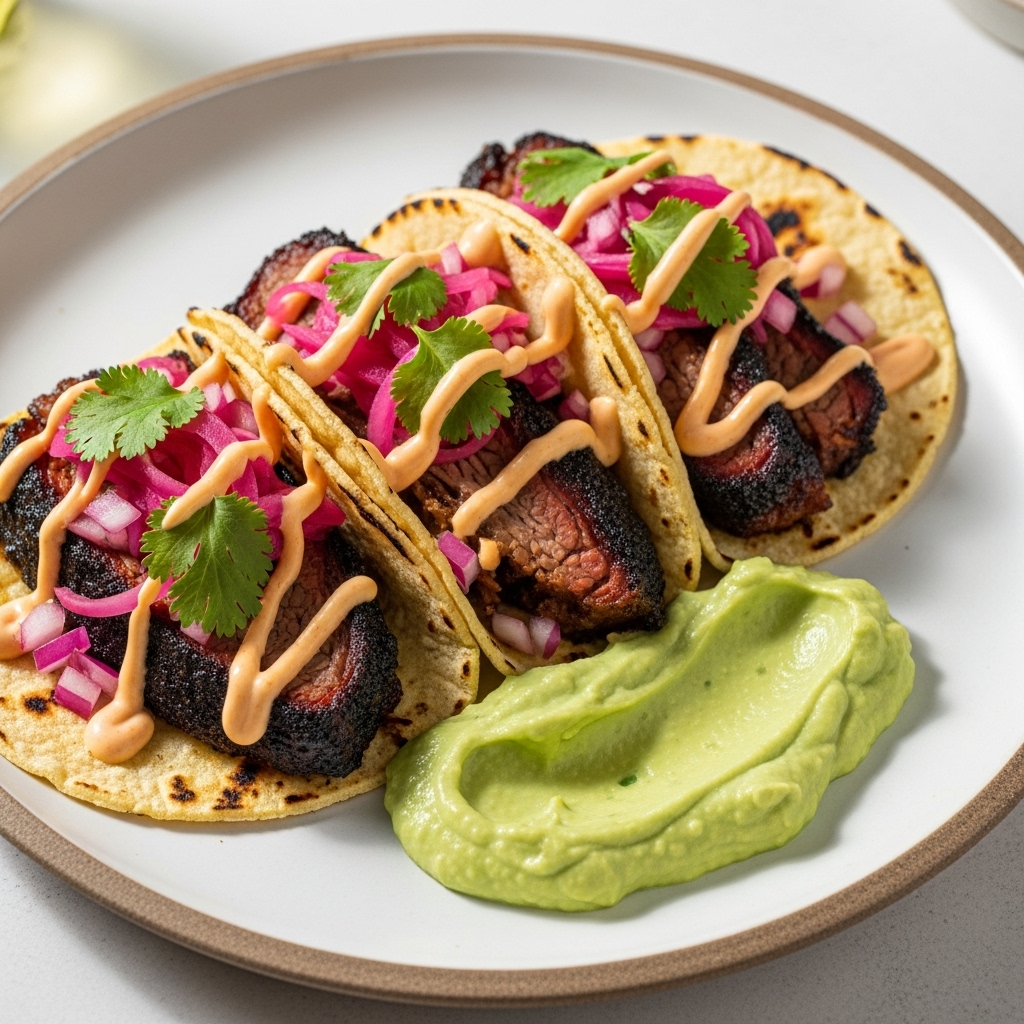
Street-Food Rebel’s Famous BBQ Beef Brisket Tacos
A mouthwatering recipe for BBQ Beef Brisket Tacos inspired by a famous street-food classic. Easy to make and packed with flavor, perfect for your next gathering or game day meal.
Allergens
Gluten, Soy, Wheat
Ingredients
- 2 lbs beef brisket
- 1 cup barbecue sauce (store
- bought or homemade)
- 1/2 cup apple cider vinegar
- 1/4 cup brown sugar
- 1 tbsp chili powder
- 1 tsp paprika
- 1 tsp garlic powder
- 1 tsp onion powder
- 1 tsp ground cumin
- Salt and pepper, to taste
- 8 small corn tortillas
- 1 cup shredded cheese (cheddar or Monterey Jack)
- 1 cup chopped lettuce
- 1/2 cup diced tomatoes
- 1/2 cup sliced red onion
- 1/4 cup chopped fresh cilantro
- Lime wedges, for serving
Instructions
- In a slow cooker, combine the brisket with barbecue sauce, apple cider vinegar, brown sugar, chili powder, paprika, garlic powder, onion powder, ground cumin, salt, and pepper. Cook on low for 8 hours or high for 5 hours.
- Remove the brisket from the slow cooker and shred it with two forks. Return the shredded meat to the slow cooker and stir to combine.
- Warm the corn tortillas in a dry pan over medium heat for 30 seconds on each side or in a 400°F preheated oven for 2 minutes per side.
- Assemble the tacos by placing a generous portion of shredded brisket on each tortilla, then top with cheese, lettuce, tomatoes, red onion, and cilantro. Finish with a squeeze of lime juice.
Chef’s Insight
To add a bit of spice to this dish, try adding 1/2 teaspoon of cayenne pepper to the dry rub or using a spicy barbecue sauce.
Notes
For a crowd-pleasing touch, serve these tacos at your next backyard BBQ or game day gathering.
